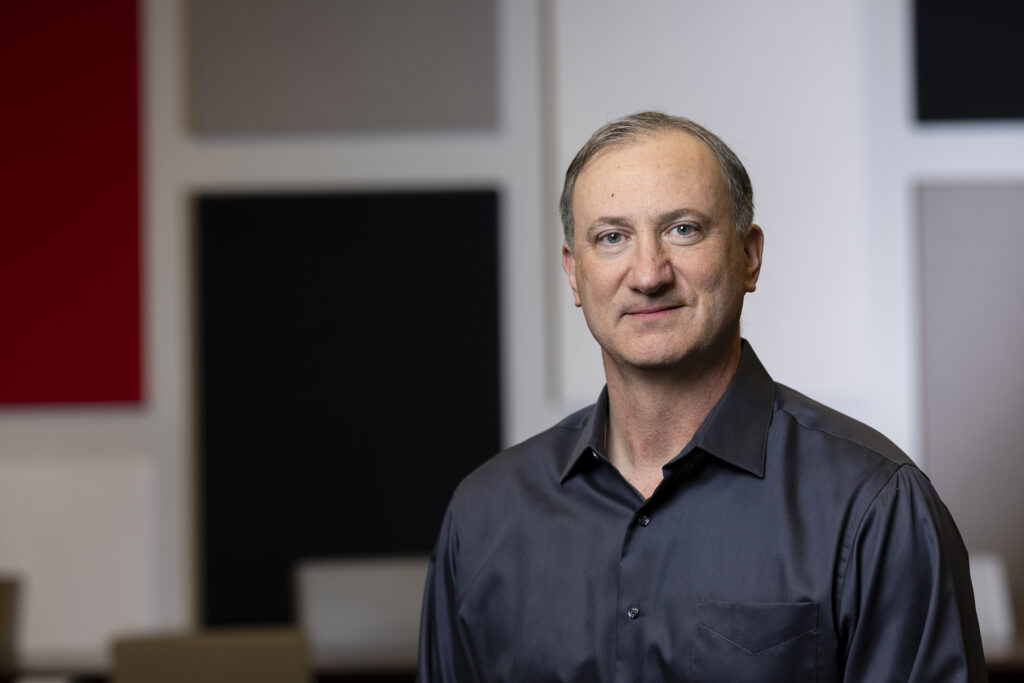Jim Zerylnick wants you to be prepared for anything.
As the clinical operations manager for the Institute for Disaster Management (IDM) in the College of Public Health, it comes with the job description. From safety supervision to hosting trainings, Zerylnick works to ensure that people have the tools and knowledge necessary to put their best foot forward in times of need.
Since graduating high school, Zerylnick has always had a hand in the public safety industry. Upon graduation, Zerylnick began working for Dekalb Emergency Medical Services as a paramedic before becoming an emergency room nurse at Dekalb Medical Center.
As Zerylnick progressed in his career, he spent a large part of it dedicated to teaching and training. He has a wealth of experience training for a range of fields and audiences like the police, fire safety officers and emergency medical workers.
While working for the Center for Operational Medicine at the Medical College of Georgia in Augusta, Zerylnick focused heavily on disaster medicine training. In the face of the terrorist attacks in 2001, he and his team set up disaster medicine training centers across the country.
“After 9/11, people were terrified,” Zerylnick said. “There was a big push to do a lot of disaster training and get ready for the next disaster.”
In 2006, Zerylnick began working at Emory University, continuing his work in disaster medicine under a bioterrorism training grant. While working under the grant, he was occasionally hired by the University of Georgia to do contract work. He finally came to UGA to work full time as the clinical operations manager for the College of Public Health in 2018.
While Zerylnick helps to develop curriculum and programs for UGA students, he also does a lot of the work externally, helping to inform people outside of the university. Though many of his trainings are consistent, much of what Zerylnick teaches students is in response to changing times.
“At one point, we were doing highly infectious disease transport classes,” he said. “The state contracted with us to help put together classes to teach the specialty emergency medical service teams how to configure an ambulance to transport an Ebola patient so that you don’t get infected, and you don’t spread the infection elsewhere.”
In his teaching, Zerylnick stresses to students the importance of thinking critically about matters of public safety. A healthy amount of skepticism is necessary to thoroughly evaluate a situation and help others.
“You can memorize all the facts, figures and dates about disasters, but if you can’t think critically, you’re not going to be able to be a good disaster manager,” Zerylnick said. “You need to think critically to respond to a disaster or to do good prevention work.”
Throughout the state, Zerylnick is known not only for his public safety teaching and trainings, but also for what he’s coined as “lame prizes,” a way to reward enthusiastic class participants.
“I would find things to give students if they shouted out a correct answer,” he said. “It would be like half of an acorn or a stick that I’d found in the parking lot, or something in the windowsill. That’s always a good place to look for prizes.”
Zerylnick’s trainings leave a lasting impression on students as they remember the valuable information that he shares along with his unique prizes.
As Zerylnick continues to educate students and organizations on various disaster matters, he also acts as the director of safety for the Institute of Disaster Management. For this role, he concerns himself with things like identifying safety hazards, monitoring extreme weather conditions, and organizing disaster supplies.
“I serve on the IDM leadership team,” he said. “I’m always on the lookout for safety issues, and I do my best to help coordinate building issues all around our facility. We are extremely fortunate to have UGA’s Facilities Management Division, professionals here on the Health Sciences Campus who are constantly maintaining and improving our building and providing us with expert advice about the multiple systems in our facility.”
In both the classroom and the field, Zerylnick stresses the importance of bringing a fresh outlook to the work. He welcomes students who approach learning with perspectives that may differ from the standard.
“It’s really helpful and refreshing as a trainer and as a teacher to educate people that ask questions with fresh and different angles,” he said.
